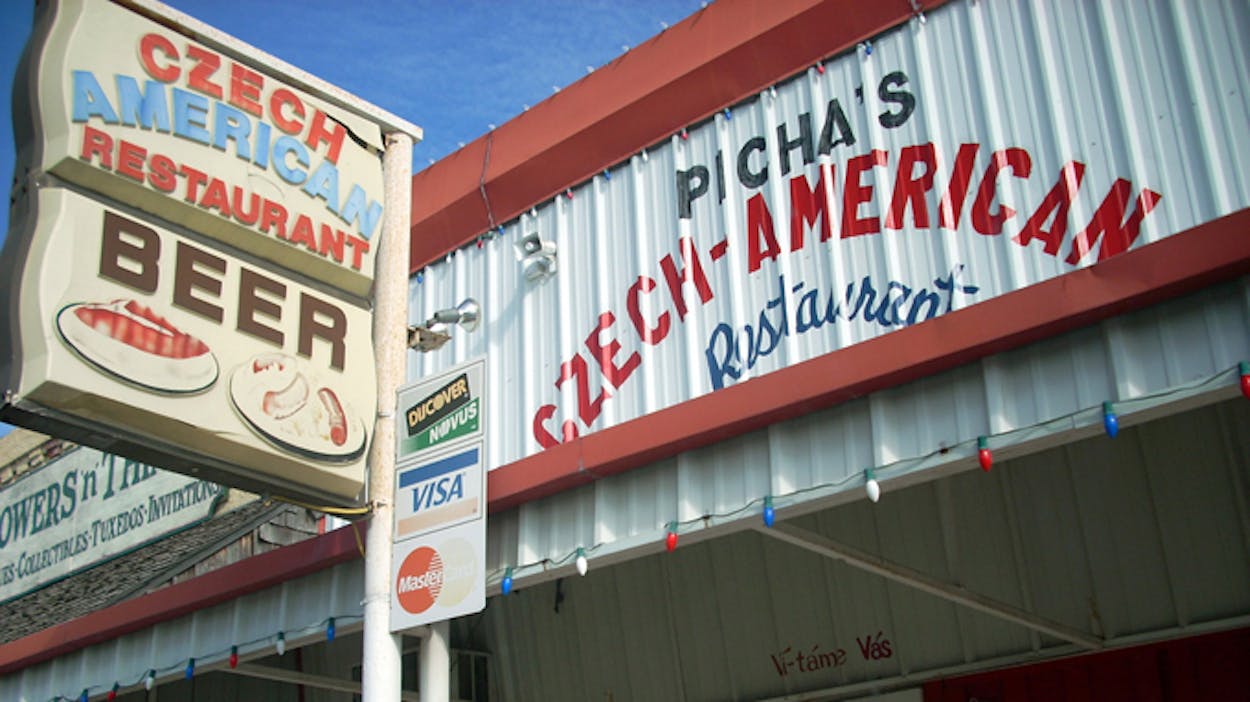Prior to the massive explosion that occurred there last week, West, Texas was primarily known for two things: their delectable kolache pastries and their community of proud Czech descendants. Not only are three-quarters of the town’s inhabitants of Czech descent, the town of about 2,800 people is known as the “Czech Heritage Capital of Texas.” It looks as though that cultural pride is a two way street, as the Czech Republic plans to donate money to the small community to help them rebuild.
Czech Foreign Minister Karel Schwarzenberg was attending a meeting of NATO foreign ministers in Brussels April 22 when he announced his intentions to send aid to Texas, reported the Prague Daily Monitor. “I will propose to the cabinet tomorrow that we offer them four million (crowns) as first aid, especially for the reconstruction of the local gym,” said Schwarzenberg. That amounts to approximately $200,000.
Czech foreign ministry spokeswoman Johanna Grohova told the Wall Street Journal that the modest contribution reflects the financial state of a nation navigating an economic downturn. “We are aware that this is a symbolic sum, but it reflects the financial capabilities of this government,” said Grohova.
The gym that Schwarzenberg wants to help reconstruct is a fitness and community center that is part of the Czech Sokol movement. Sokol is a gymnastic society, which was founded in Prague in 1862 to promote Czech culture and social life. Since its inception, it has been banned several times by occupying forces to suppress local culture, according to United Press International. The gym in West was part of the American Sokol Organization, a direct desendant of the Sokol tradition, which was founded in St. Louis in 1865.
West, Texas was founded as a railroad town in 1882 and attracted a large number of Czech and German immigrants. Many Czech expatriates of the late nineteenth century came seeking liberties not afforded them by the then-Austrian Empire, which sought to suppress Czech language and culture. “Czechs came to Texas for freedom. They didn’t want to be forced to speak German,” Jerry Janecka, 80, a fifth-generation Czech-American in West told the Fort Worth Star-Telegram. “They wanted to keep their church. They wanted to live their own way. That is a close-knit community.”
The Czech community in West is a vibrant presence in the little town. Until last year, they had a successful Czech language weekly newspaper. Families still teach the children to speak Czech, and they worship at the Czech Protestants’ old Brethren church, according to the Star-Telegram.
Aside from a modest donation, the Czech Republic is making its presence felt in West with actual boots on the ground. Petr Gandalovic, Czech ambassador to the United States, traveled from Washington D.C. to the tiny Texas town last week to offer his condolences and to reassure its residents that they have the support of the motherland. The ambassador reaffirmed the tight bond the town still maintains with the European nation. “This is basically a Czech city. The [Czech] families [are] over 70 percent, many have some Czech origin. They have Czech names and they maintain Czech festivities,” Gandalovic told KLTV.
Gandalovic made headlines recently when he had to give a geography lesson to the Internet. After the bombing in Boston last week, which was allegedly perpetrated by individuals descended from the Republic of Chechnya, social media became a hotbed of misinformed commenters spewing vitriol towards Czech people. “The Czech Republic and Chechnya are two very different entities,” Gandalovic said in a public statement. “The Czech Republic is a Central European country; Chechnya is a part of the Russian Federation.”
There is no confusion about the Czech-Chechnyan distinction in West, Texas, however. And the country whose habits and customs West residents still cherish clearly knows the difference between West, Texas and West Texas, too.
- More About:
- Politics & Policy






